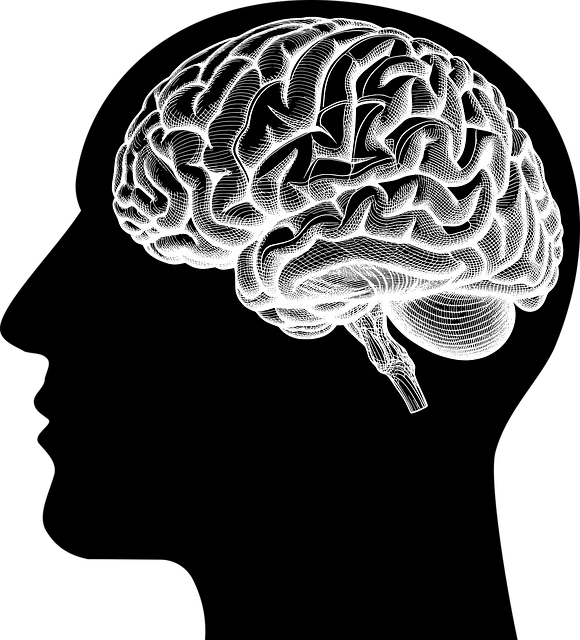In today's fast-paced world, self-assessment tools for mental wellness are gaining importance. According to Kaiser Permanente behavioral health services reviews Centennial, these tools help individuals monitor and assess their mental state through integrated self-care practices, enabling early intervention for stress, anxiety, or depression. The growing recognition of mental health as a key component of overall well-being has led to the development of Mental Health Education Programs and effective self-assessment resources, reducing stigma and fostering open dialogue. Designing these tools involves a meticulous process focusing on areas like mood, anxiety, and relationships, incorporating validated questions, self-awareness exercises, and cultural sensitivity. Kaiser Permanente's program enhances emotional regulation through structured feedback mechanisms, patient-provider reviews, and Mental Wellness Journaling Exercises, empowering individuals to engage in long-term mental wellness strategies for better treatment outcomes.
Mental wellness self-assessment tools play a crucial role in empowering individuals to take charge of their mental health. With increasing awareness about the importance of mental well-being, there is a growing demand for accessible and effective assessment resources. This article explores the development process of such tools, offering insights into understanding user needs, designing comprehensive assessments, and presenting a case study focusing on Kaiser Permanente Behavioral Health Services’ successful reviews of Centennial programs.
- Understanding the Need for Self-Assessment Tools in Mental Wellness
- Designing Effective Mental Health Assessment Tools: A Step-by-Step Process
- Case Study: Kaiser Permanente Behavioral Health Services Reviews Centennial – A Model for Improvement
Understanding the Need for Self-Assessment Tools in Mental Wellness

In today’s fast-paced world, self-assessment tools for mental wellness are becoming increasingly vital to help individuals take charge of their psychological well-being. These tools, like those developed by Kaiser Permanente behavioral health services reviews Centennial, play a crucial role in Mental Health Education Programs Design by empowering people to regularly monitor and assess their mental state. By integrating Self-Care Practices into daily routines, individuals can early on identify signs of stress, anxiety, or depression, thereby facilitating timely intervention and support.
The need for such tools is underscored by the growing recognition of mental health as an integral component of overall health. Mental Health Awareness campaigns have shed light on the prevalence and impact of mental health issues, encouraging a more open dialogue and reducing stigma. With access to effective self-assessment resources, individuals can proactively manage their mental wellness, leading to improved quality of life and enhanced resilience in navigating life’s challenges.
Designing Effective Mental Health Assessment Tools: A Step-by-Step Process

Designing effective mental health assessment tools is a meticulous process that involves several steps to ensure accurate and meaningful insights. It begins with identifying the specific areas of mental wellness to be assessed, such as mood, anxiety, stress management, or interpersonal relationships. This step is crucial for tailoring the tool to address relevant concerns, aligning with the comprehensive approach offered by Kaiser Permanente behavioral health services reviews Centennial.
Next, involve subject matter experts and professionals in behavioral health to develop validated questions and metrics. Incorporate self-awareness exercises and conflict resolution techniques to capture nuances in an individual’s mental state. Ensure cultural sensitivity and accessibility for diverse populations. Regularly update and refine the tools based on research and feedback, focusing on preventing depression and promoting positive mental health. The goal is to create user-friendly resources that provide actionable insights for improvement.
Case Study: Kaiser Permanente Behavioral Health Services Reviews Centennial – A Model for Improvement

In the realm of mental wellness self-assessment tools development, Kaiser Permanente Behavioral Health Services Reviews Centennial stands out as a model for improvement. This case study highlights how structured feedback mechanisms and comprehensive reviews can significantly enhance patient outcomes. By examining the experiences and insights shared by both patients and healthcare providers, Kaiser Permanente has successfully tailored its services to better address emotional regulation and inner strength development.
The Mental Wellness Journaling Exercise Guidance implemented within this framework encourages individuals to reflect on their emotional journeys, fostering a deeper understanding of personal challenges and growth areas. This practice not only enhances self-awareness but also serves as a powerful tool for tracking progress over time. As a result, patients are better equipped to engage in proactive strategies that support their ongoing mental wellness, setting the stage for more sustainable and effective treatment outcomes.
The development of mental wellness self-assessment tools is a vital step towards improving access to mental healthcare. By learning from innovative models like the Kaiser Permanente behavioral health services reviews Centennial, we can create effective and user-friendly assessments that empower individuals to take charge of their mental well-being. Integrating these tools into routine care has the potential to revolutionize how we identify and address mental health concerns, fostering a more inclusive and supportive society.






